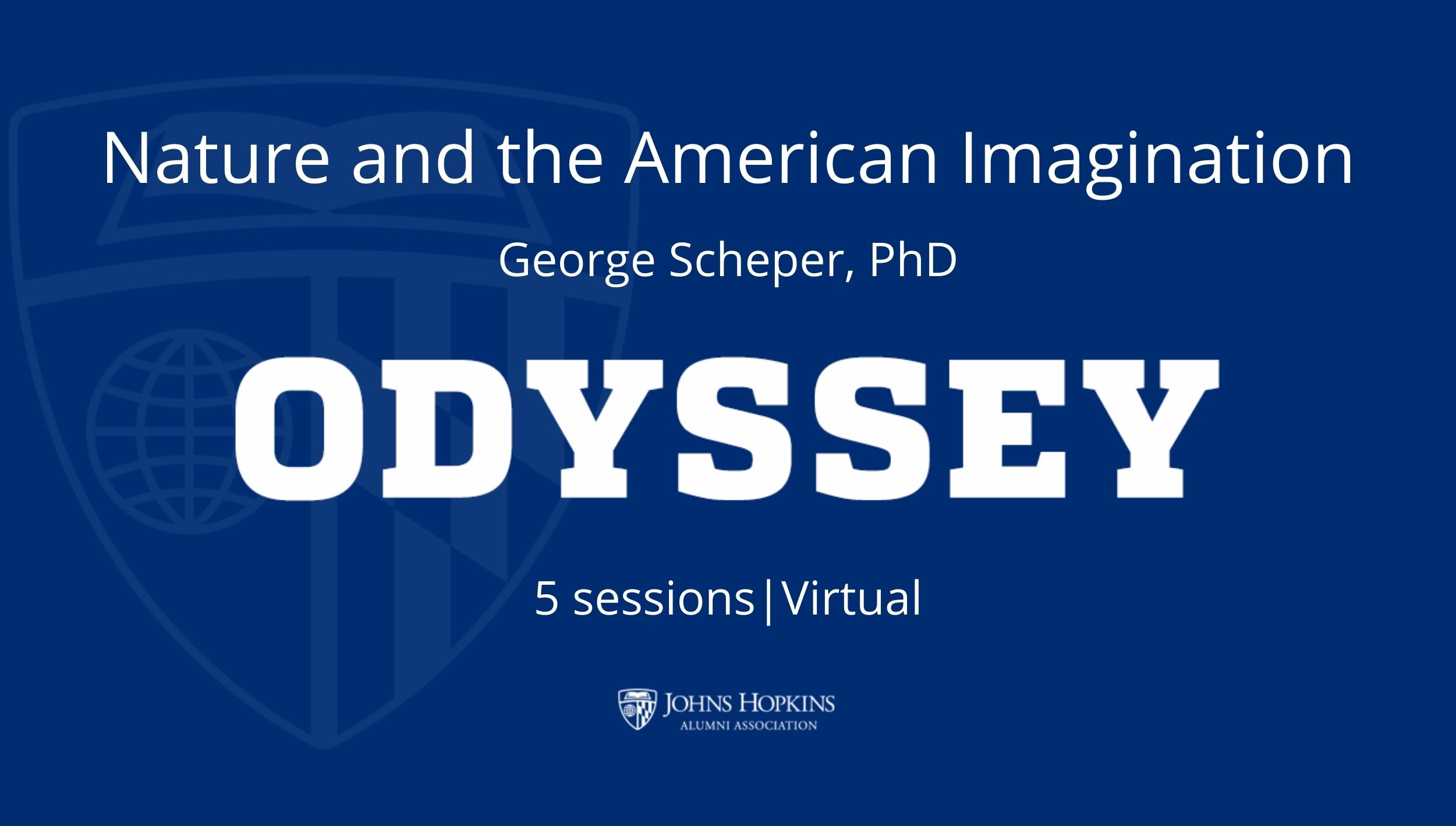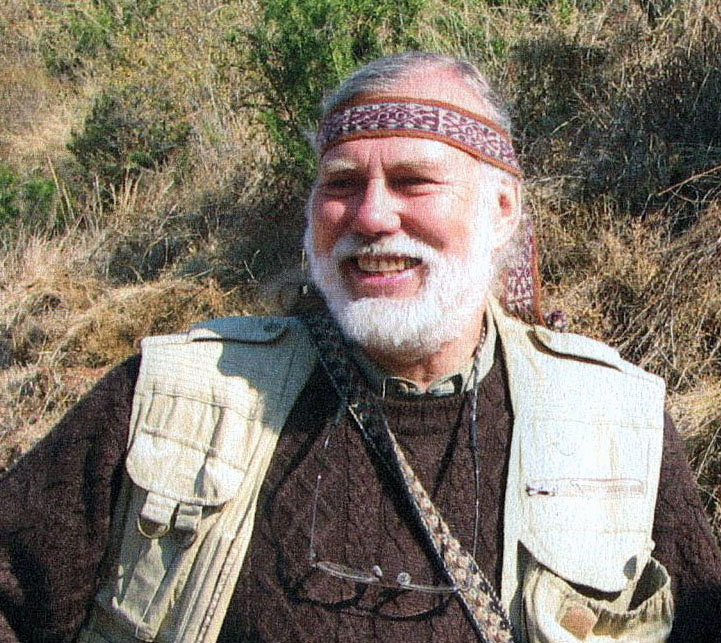Nature and the American Imagination

Brought to you by Odyssey
September 21, 2021 - October 19, 2021
Tuesdays, 6:30 PM - 8:30 PM ET (10 course hours)
I think of two landscapes—one outside the self, the other within. The external landscape is the one we see—not only the line and color of the land and its shading at different times of the day, but also its plants and animals in season, its weather, its geology, the record of its climate and evolution . . . The second landscape I think of is an interior one, a kind of projection within a person of the part of the exterior landscape . . .the speculations, intuitions, and formal ideas we refer to as “mind” . . . The interior landscape responds to the character and subtlety of an exterior landscape; the shape of the individual is as affected by land as it is by genes.
~~Barry Lopez, “Landscape and Narrative”
This course offers an interdisciplinary study of the American natural environment and the role it has played in shaping American identity. We anchor our study by looking at the way ideas of the natural environment and the lands and waters of North America have been constructed throughout cultural history -- as kindred spirits by Native Americans; as a “howling wilderness” by the early European colonists; as a boundless inventory of resources that were "ours for the taking" by right of Manifest Destiny; as a school for the spirit by the New England Transcendentalists; as a precious inheritance in need of stewardship and preservation by 19th-century conservationists such as John Muir and Teddy Roosevelt; as a crisis of global warming, environmental degradation and Sixth Extinction by Deep Ecologists.
Philosophically, we explore the influence on early colonists of Biblical and Enlightenment thought, of the European Romantic movement, and the moral ambiguities of the American land and environment in relation to the slave experience and U.S. policies of "Indian Removal." We explore ideas of European Romanticism that gave rise to Emersonian Transcendentalism (America’s first homegrown philosophy), the competing theories behind forest management, the national park movement, and wilderness preservation and. more recently, the revival of Native American holistic values in ecological paradigms.
Beginning with Thoreau, who “went to the woods to learn to live deliberately, “ and John Muir, we read noted texts of American nature writing, one of America’s finest contributions to world literature. We'll discuss the bridging of the so-called "two cultures," science and art, in the work of writers Ed Abbey and Annie Dillard, paleontologist Loren Eiseley, and conservationist/activists Aldo Leopold, Rachel Carson, and Al Gore.
Readings
Readings will be sent electronically to the class for each class session, not as "assignments," but as the basis for enhancing our class discussions. It is recommended, but not required, to purchase the following text.
Nash, Roderick. Wilderness and the American Mind, 4th ed. Yale Univ. Press, 2001. ISBN: 978-0-300-09122-9. Although there is a new edition, use this 4th edition; used copies are available on Amazon for about $3.49.
About the Instructor
 George L. Scheper (PhD, Princeton) is Senior Lecturer for the Master of Liberal Arts Odyssey, and Osher programs of the Johns Hopkins University, and is a frequent lecturer for the Smithsonian Associates and NYU's Center for Applied Liberal Arts.
George L. Scheper (PhD, Princeton) is Senior Lecturer for the Master of Liberal Arts Odyssey, and Osher programs of the Johns Hopkins University, and is a frequent lecturer for the Smithsonian Associates and NYU's Center for Applied Liberal Arts.
Tuition Remission and Refund Policies
Full-time JHU faculty/staff, their spouses or same-sex domestic partners, JHU retirees and their spouses or same-sex domestic partners are eligible for tuition remission. The tuition remission form is required. All tuition remission forms and details on eligibility can be found here and should be returned to odyssey@jhu.edu.
After registration, tuition remission eligibility will be confirmed by the Odyssey registrar. If eligibility cannot be confirmed, you will be required to pay full tuition for the course. Under the terms of the University’s remission program, Hopkins employees must withdraw in writing at least five working days before the first class to receive a 100% refund. No partial refunds are given to JHU employees and affiliates.
Please visit the registration and policies page for more information.
While participating in on-campus events and meetings, participants must follow all public health guidelines required by Johns Hopkins University and Medicine at the time of the event. If you are not fully vaccinated, we require that you wear a face covering during your visit to campus, even when it is no longer required for those who are vaccinated.
While participating in off-campus events and meetings sponsored by the JHAA/JHM/JHHS participants must follow all public health guidelines mandated by the local jurisdiction and venue at the time of the event, including vaccination and masking and distancing guidance. Johns Hopkins strongly suggests that attendees who join in person be fully vaccinated.
